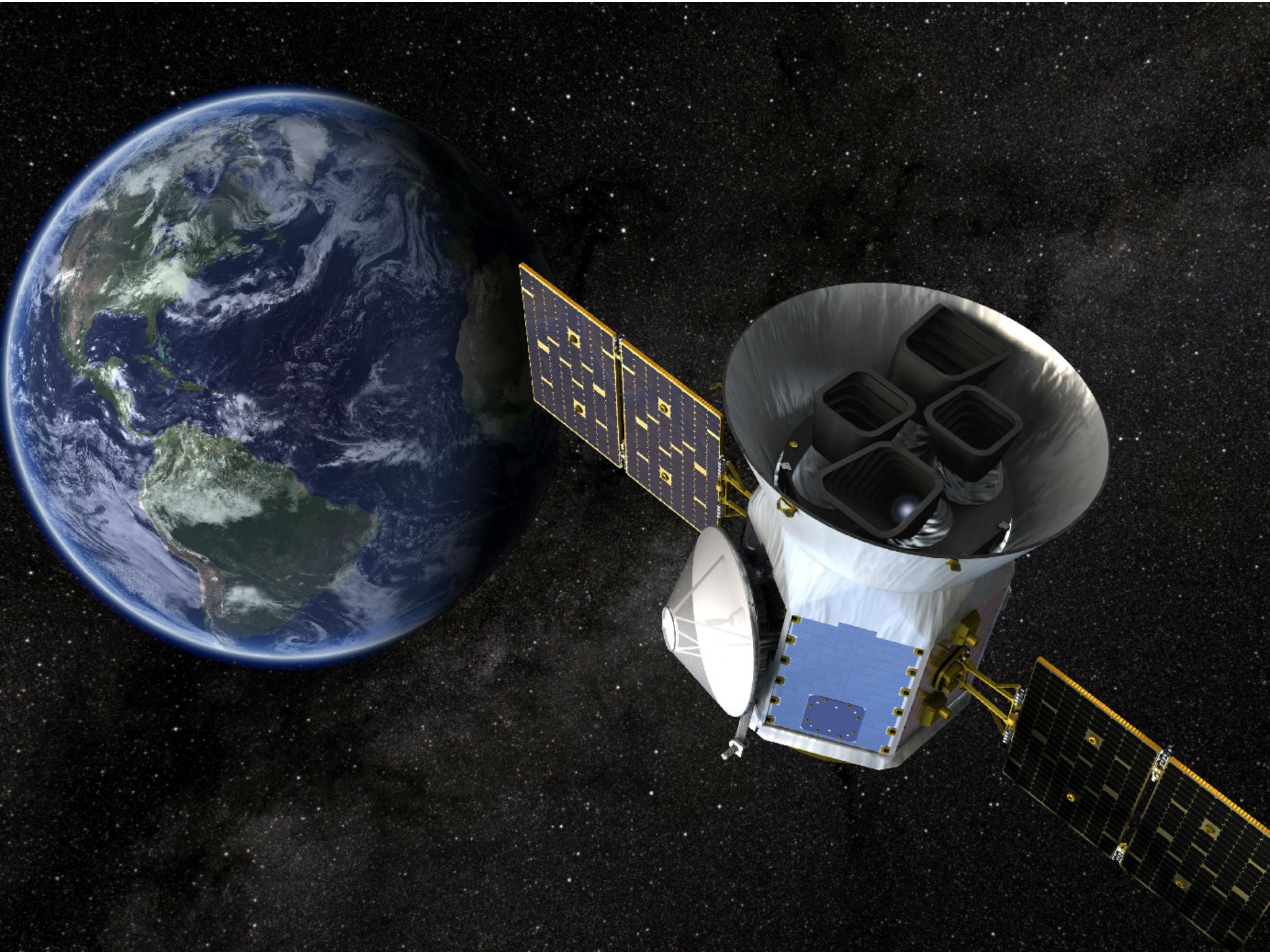SpaceX halts launch of satellite that will look for planets capable of supporting life
Company now aiming for a Wednesday launch

SpaceX has delayed the launch of a satellite that will look for planets capable of supporting life.
The private spaceflight company said it needed more time to analyse its guidance, navigation, and control systems for a rocket that will bear the NASA satellite into space. It is now aiming for a Wednesday lunch.
Additional testing notwithstanding the spacecraft “is in excellent health, and remains ready for launch”, NASA said in a statement.
The Transit Exoplanet Survey Satellite was scheduled to lift off from a launchpad in Cape Canaveral, Florida as it began a mission seek to locate more “exoplanets”, or worlds that could harbour other lifeforms.
When it does depart, the $337m (£235m) craft will spend two years gathering information on what astronomers hope could be thousands of new planets.
It will be propelled by a Falcon 9 rocket supplied by SpaceX, a company founded by Tesla CEO Elon Musk. The collaboration offers the latest example of a renewed effort to explore the cosmos by tapping into private resources.
SpaceX last month shot ten communications satellites into low-earth orbit and earlier this year launched the Falcon Heavy, the world’s most powerful rocket.

Space exploration has shown a jolt of momentum in recent months amid a string of SpaceX launches and resurgent enthusiasm from the White House.
Officials in the Trump administration have outlined a commitment to reviving the faltering US space programme, moving to return astronauts to the moon and lay the groundwork for a mission to Mars.
Join our commenting forum
Join thought-provoking conversations, follow other Independent readers and see their replies
Comments
Bookmark popover
Removed from bookmarks